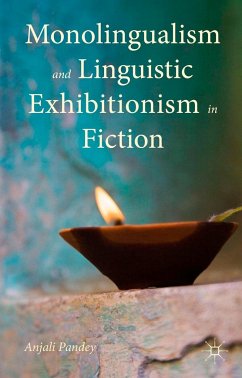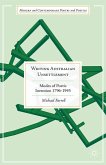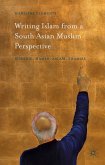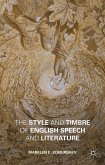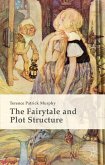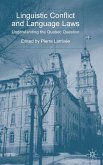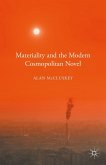How are linguistic wars for global prominence literarily and linguistically inscribed in literature? This book focuses on the increasing presence of cosmetic multilingualism in prize-winning fiction, making a case for an emerging transparent-turn in which momentary multilingualism works in the service of long-term monolingualism.
"Monolingualism and Linguistic Exhibitionism in Fiction is a timely, wide-ranging and thought-provoking work that simultaneously reasserts the power of literature and questions its influence on linguistic diversity and (in)tolerance. Because it reminds its readers of the importance of language difference and multilingualism, it will be of interest to a wide range of students and scholars but ... it will mostly appeal to those of applied linguistics, multilingualism, stylistics, postcolonial studies and cultural studies." (Noémie Nélis, English Text Construction, Vol. 10 (1), 2017)
"Pandey's book is a timely good read for our post-global literary scene. It is a cogent account of linguistic imbalance in literature, literary capital, and canon formation. Interestingly, the book provides an insight into how scholars with a background in linguistics deal with literarymaterials. ... this book can be read as an ardent call for real multilingualism in fiction to help achieve more international communication and a better, symmetrical global interchange." (Dr. Shadi Neimneh, Arab World English Journal, October, 2016)
"Pandey's book is a timely good read for our post-global literary scene. It is a cogent account of linguistic imbalance in literature, literary capital, and canon formation. Interestingly, the book provides an insight into how scholars with a background in linguistics deal with literarymaterials. ... this book can be read as an ardent call for real multilingualism in fiction to help achieve more international communication and a better, symmetrical global interchange." (Dr. Shadi Neimneh, Arab World English Journal, October, 2016)

